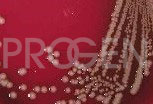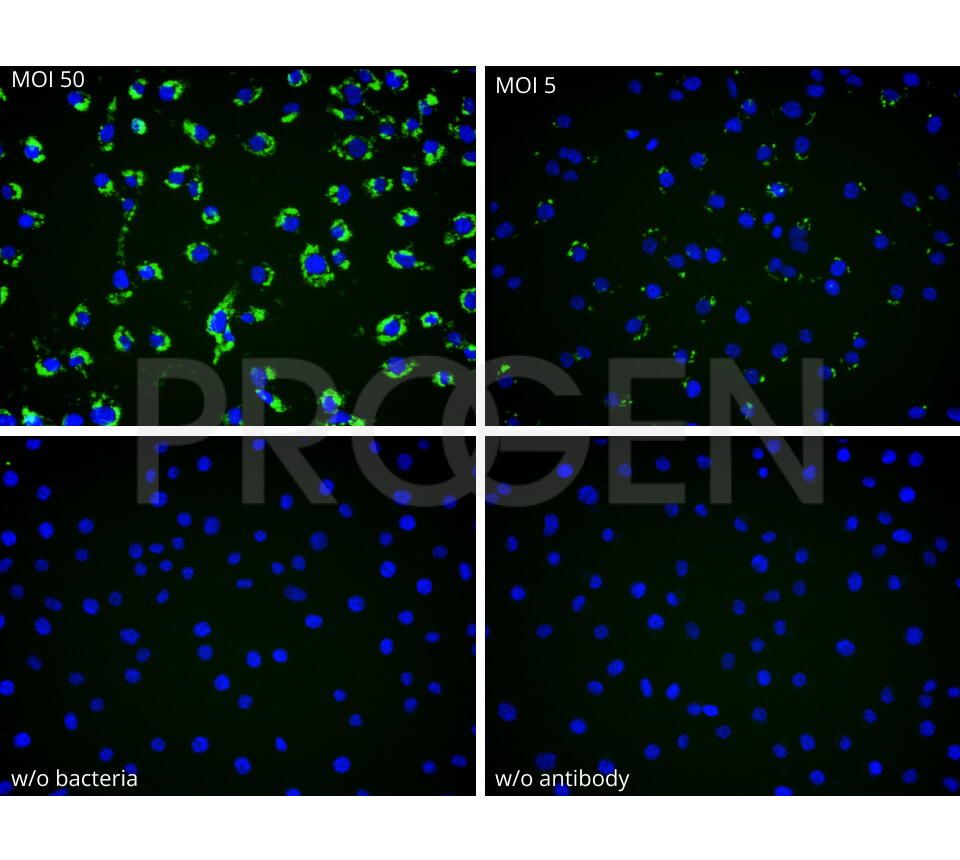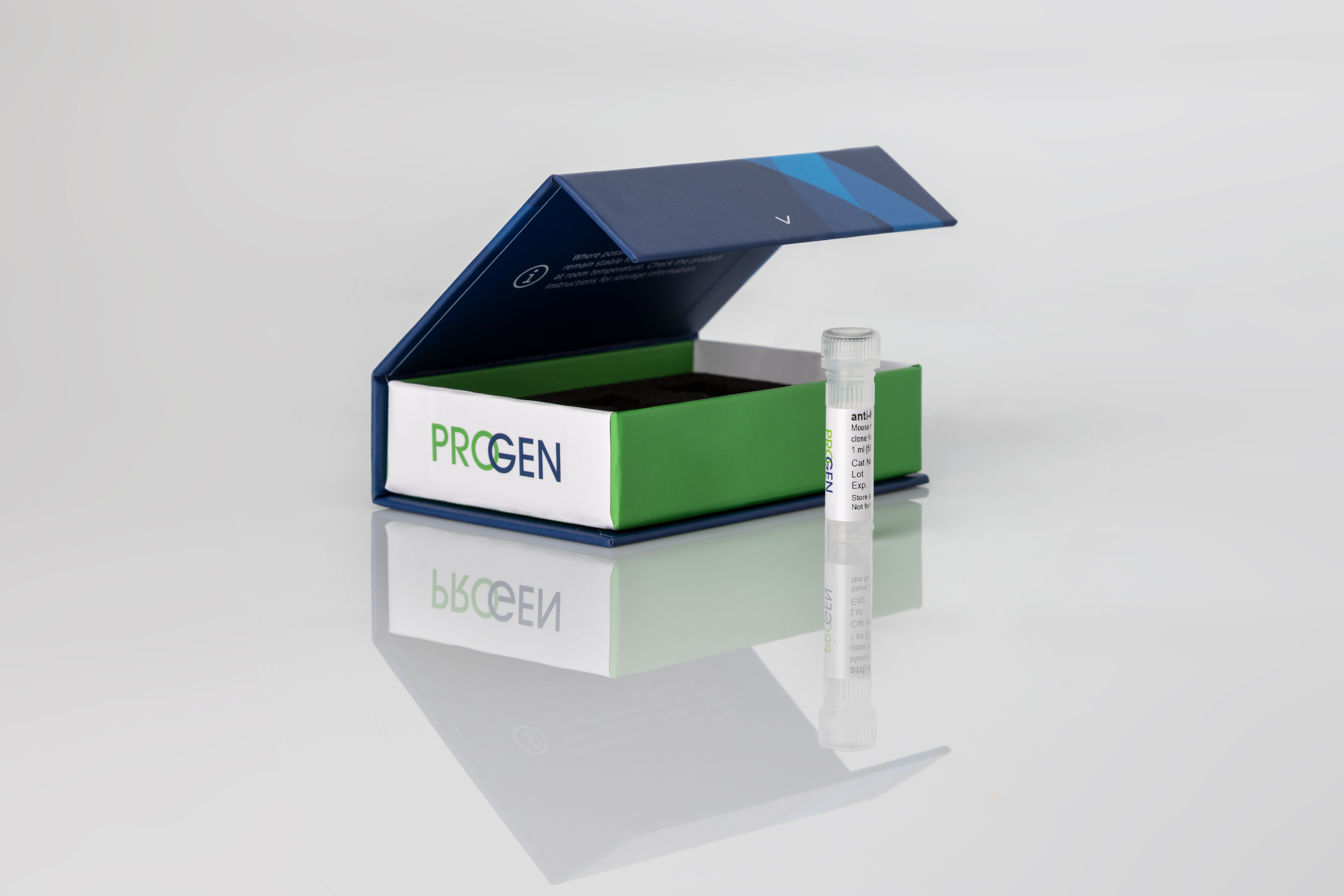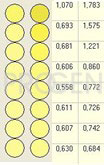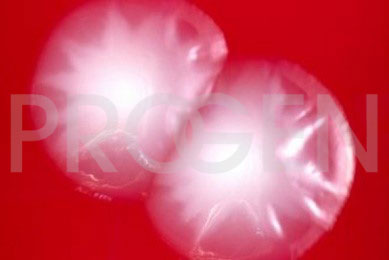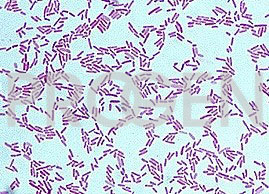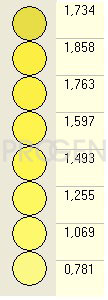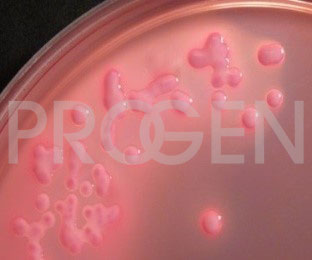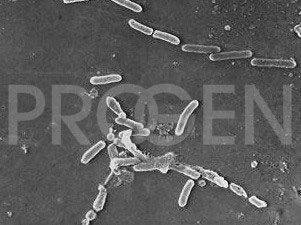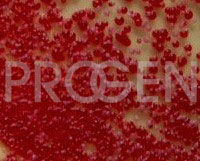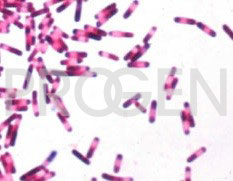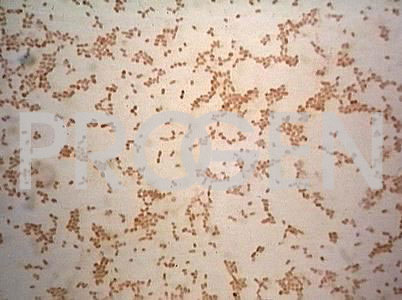anti-E. coli O157 mouse monoclonal, EBS-I-023, purified
- Mouse monoclonal
- Suitable for ELISA, ICC/IF and IHC
- Reacts with E. coli O157
- Isotype: IgM kappa
Product description
| Quantity | 1 ml (100 µg/ml) |
|---|---|
| Antibody Type | Monoclonal |
| Host | Mouse |
| Isotype | IgM kappa |
| Conjugate | Unconjugated |
| Application | ELISA, ICC/IF, IHC |
| Purification | Affinity chromatography |
| Reactivity | E. coli O157 |
| Storage | 2-8°C |
| Intended use | Research use only |
| Clone | EBS-I-023 |
| Immunogen | Crude sonicate of E. coli O157 |
| Concentration | 100 µg/ml |
| Formulation | PBS with 0.02% sodium azide |
Applications
| Tested applications | Tested dilutions |
|---|---|
| Immunocytochemistry (ICC)/ Immunofluorescence (IF) | 1:100-1:200 (0.5-1 µg/ml) |
| Immunohistochemistry (IHC) - frozen | 1:50-1:100 (1-2 µg/ml) |
| ELISA | Assay dependent |
Background
EBS-I-023 shows specificity to E. coli O157 in a simple ELISA. Escherichia coli are a Gram negative bacteria that are commonly found in the lower intestine of warm-blooded organisms (endotherms). Their serological types are determined in combination with somatic antigens (O group: O1-O173) and flagella antigens (H type: H1-H56). The E. coli that cause intestinal infectious diseases including diarrhea, acute gastritis or colitis are referred to as pathogenic E. coli, which are classified into the following 4 groups according to differences in the mode of pathogenicity; enteropathogenic E. coli (EPEC), enteroinvasive E. coli (EIEC), enterotoxigenic E. coli (ETEC) and enterohemorrhagic E. coli (EHEC). Although the identification of pathogenic E. coli requires verification of their pathogenicity, pathogenic E. coli often have specific serotypes; therefore, typing of the serogroup and serotype is necessary in screening pathogenic E. coli.
Positive control: E. coli O157 extract or infected cells or tissue.
Downloads
Q & A's
Customer Reviews
Login
FAQs
The concentration of purified antibodies is mentioned on the datasheet.
For prediluted antibodies the concentration may vary from lot to lot. The concentration of these antibodies is not mentioned on the datasheet and can be requested at support@progen.com.
The supernatant format contains FCS proteins from cell culture medium supplemented with FCS.
The serum antibodies contain other proteins present in serum.
- Supernatant and supernatant concentrate: This format contains hybridoma cell culture supernatant. The antibody is not purified and the antibody concentration is not determined. The antibody concentration may vary from lot to lot. Therefore we recommend to titrate the optimal concentration for the application used for each new lot.
- Lyophilized, purified: This format contains purified antibody in lyophilized form. The reconstitution of this antibody is described in the datasheet. The buffer composition after reconstitution is also mentioned on the datasheet.
- Liquid, purified: This format contains purified antibody in liquid format. The concentration is mentioned on the datasheet.
- Prediluted, purified: This format contains purified antibody in liquid format. Most antibodies in this format are diluted to be ready-to-use for IHC with standard tissue. But some antibodies of this format need further dilution for IHC. This is mentioned on the datasheet.
Most of our liquid antibodies and reconstituted lyophilized antibodies may be stored for short term storage (up to 3 month) at 2-8°C. For long term storage we recommend to store the antibody at -20°C in aliquots. Please avoid freeze and thaw cycles.
Most of our conjugated antibodies should be stored at 2-8°C.
The individual storage conditions are mentioned on the datasheet.

